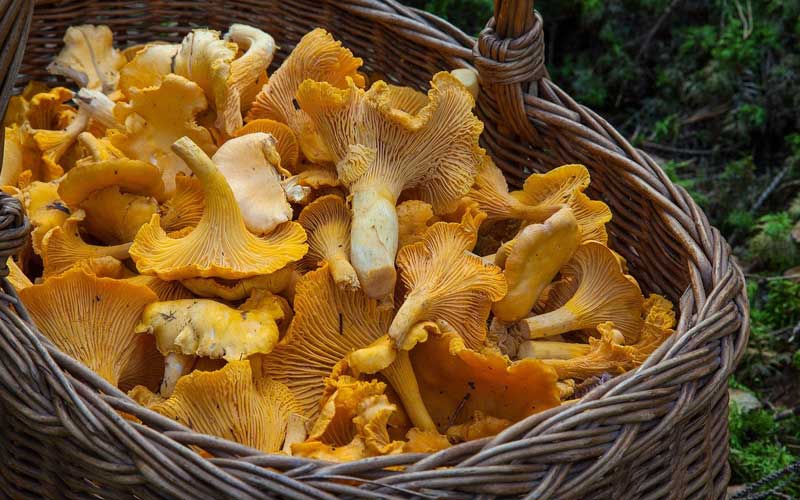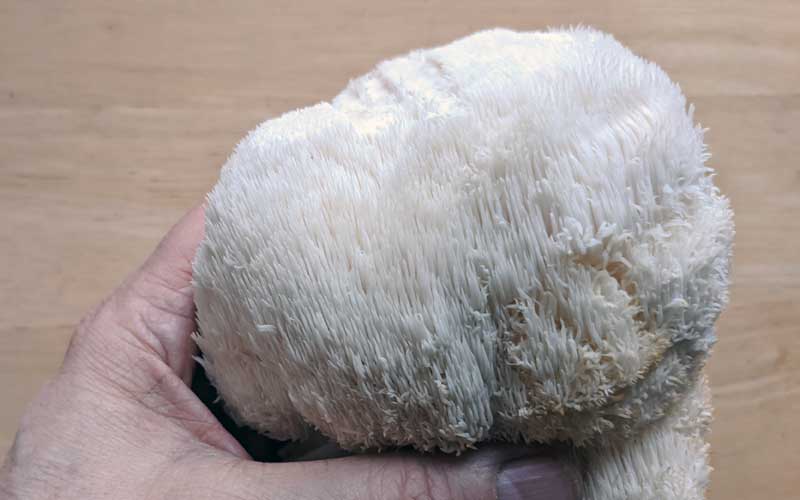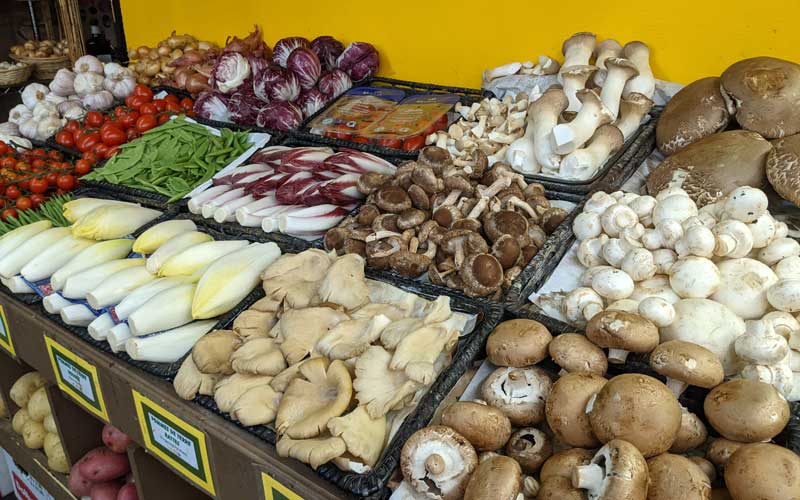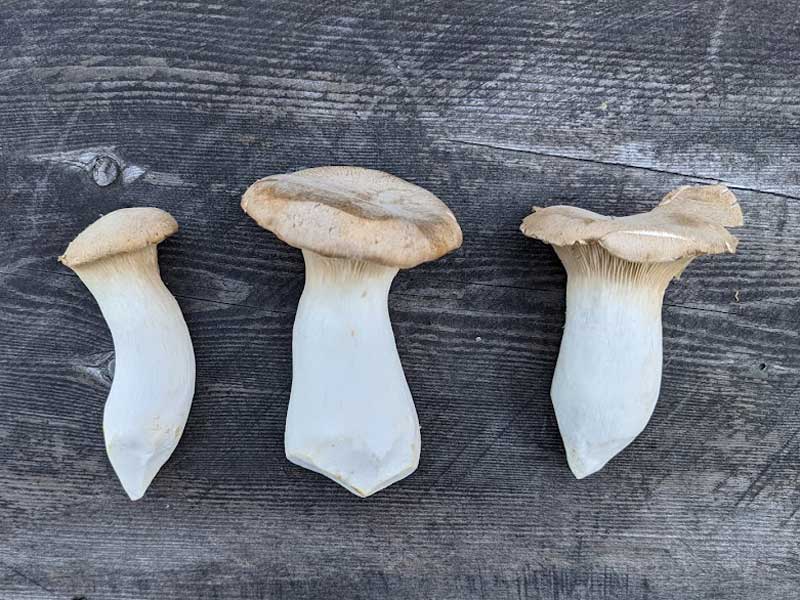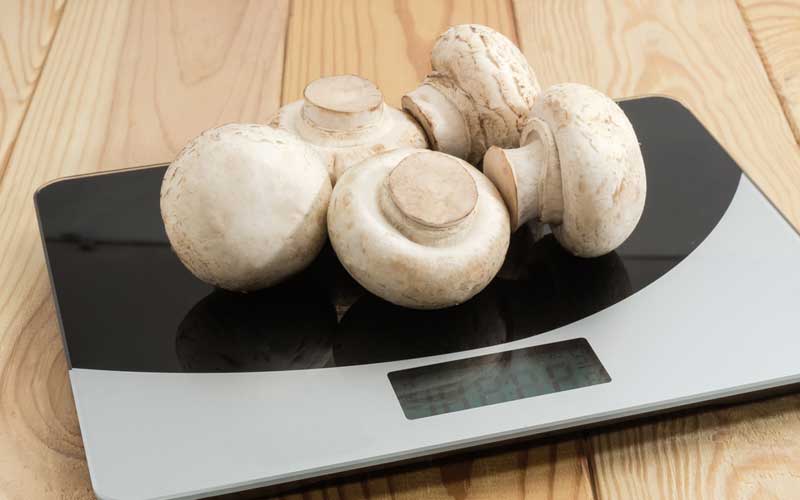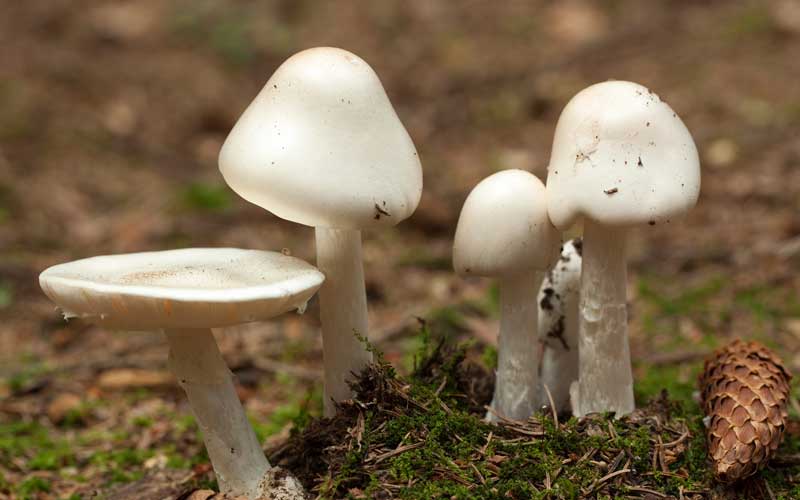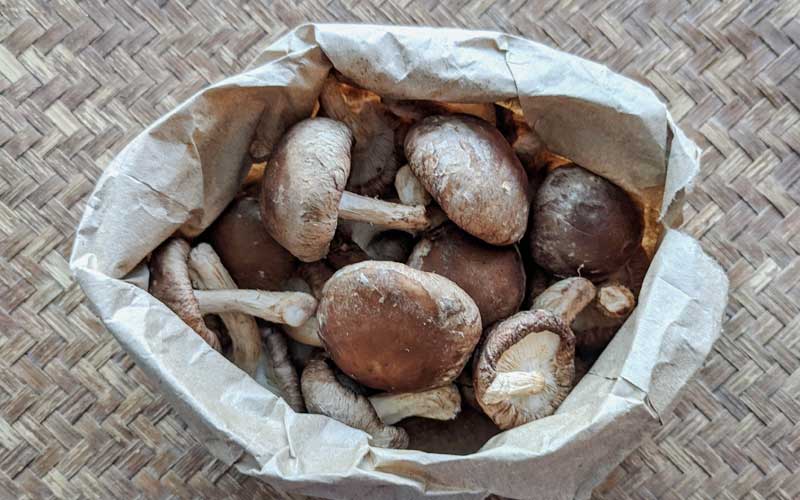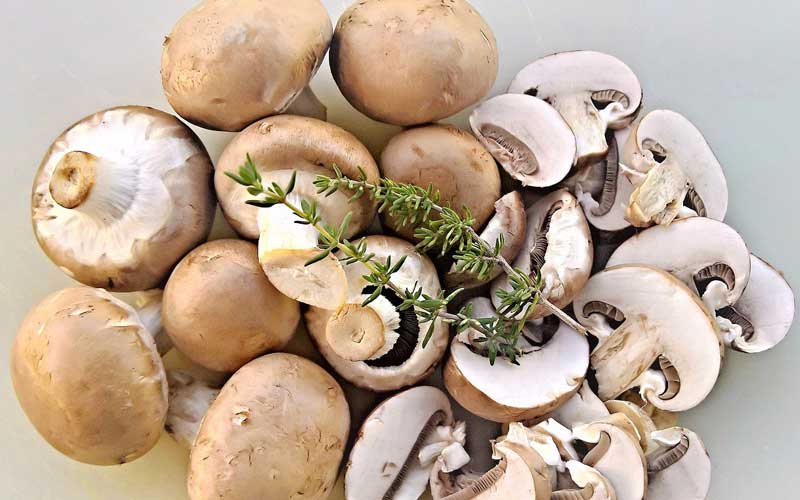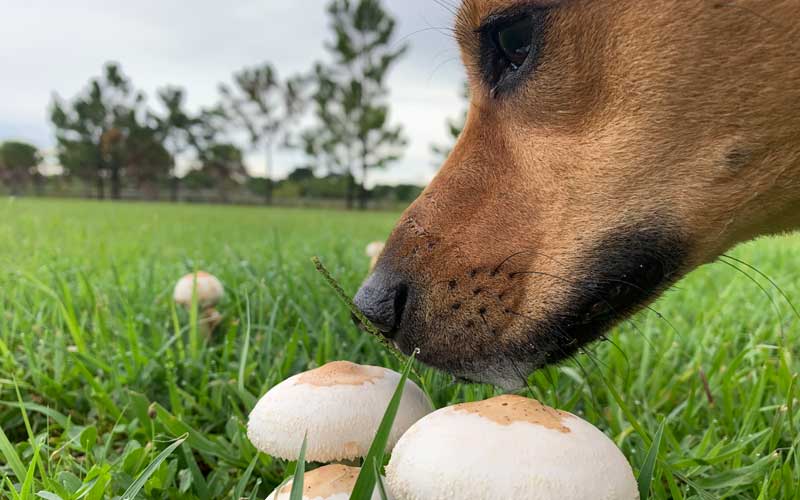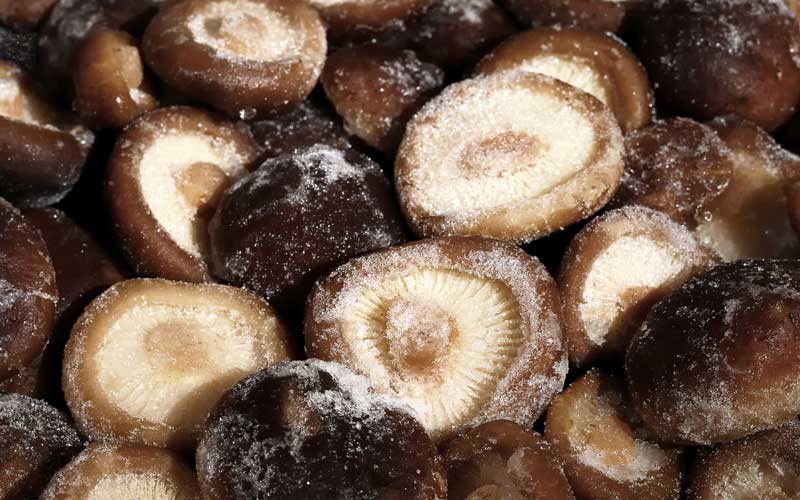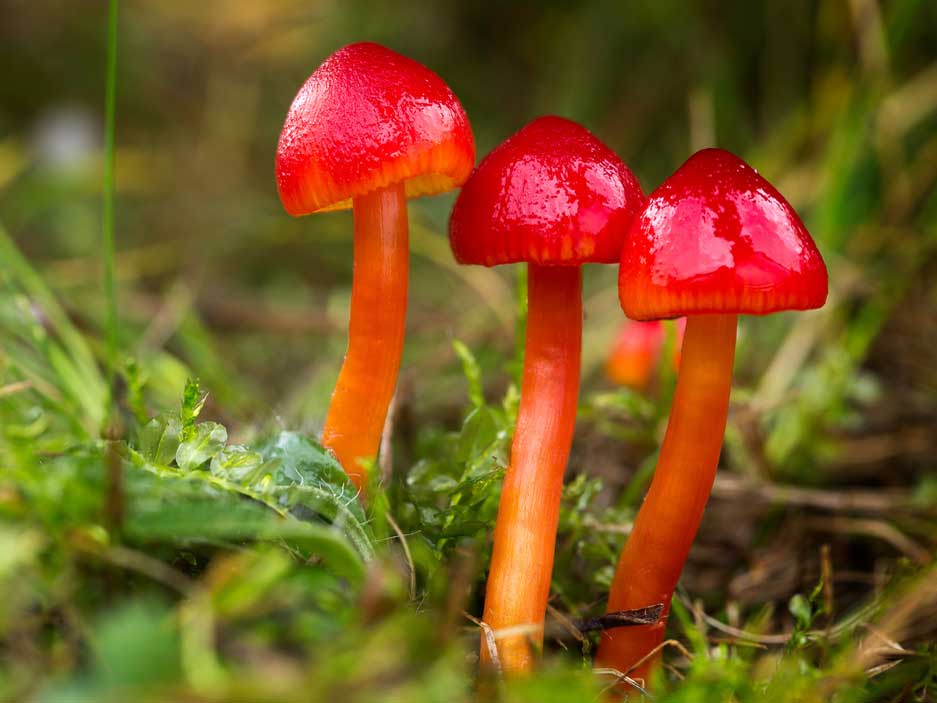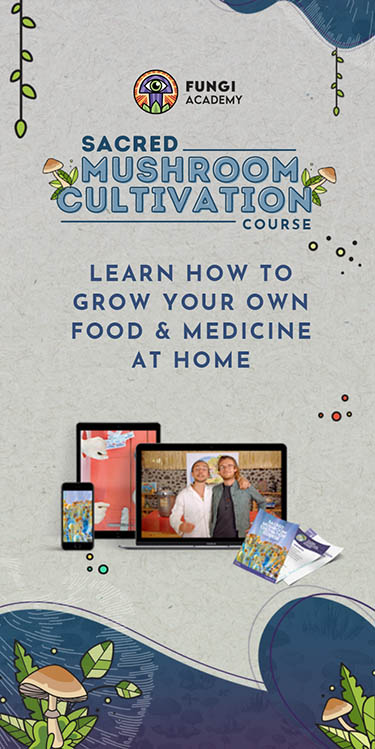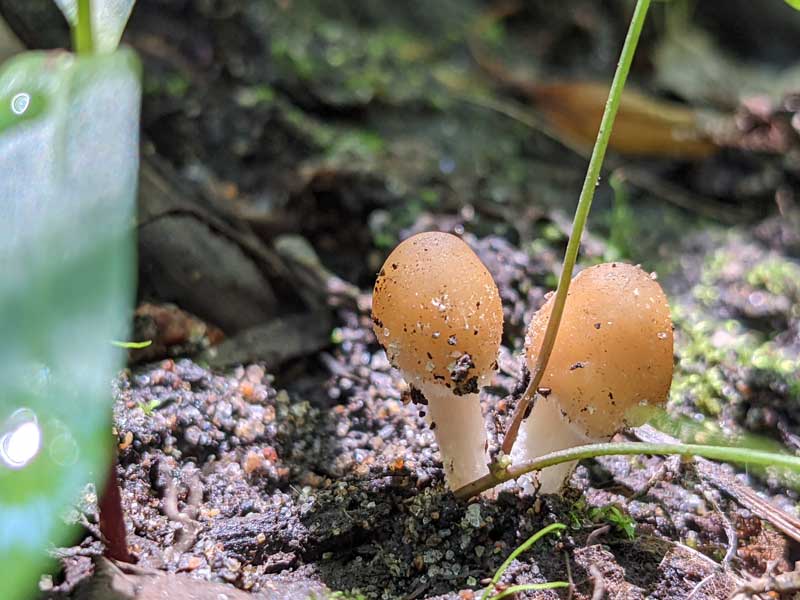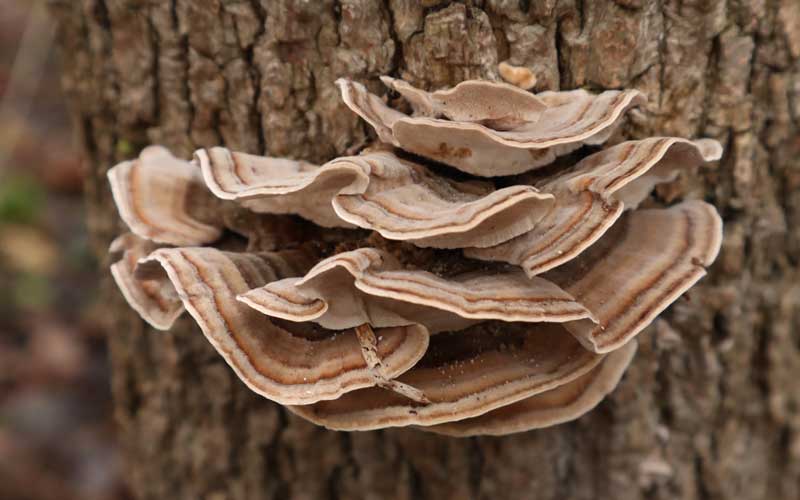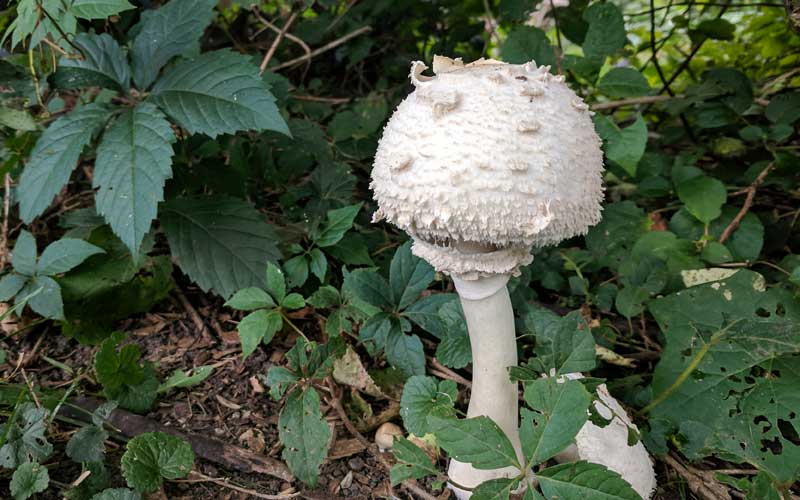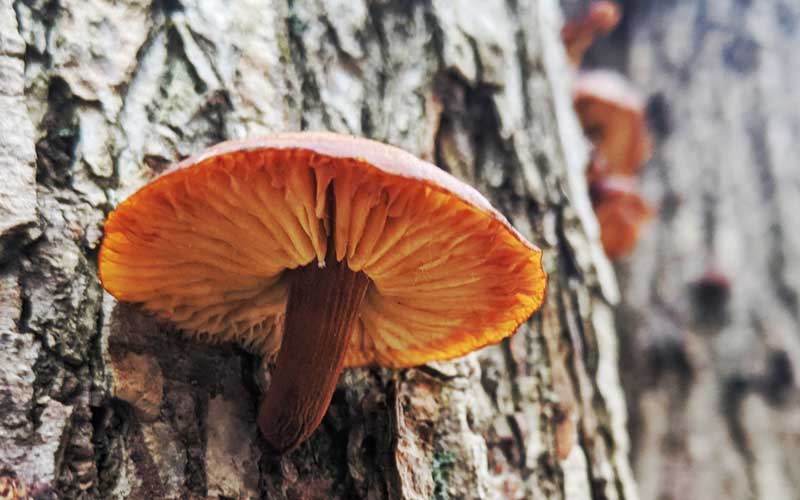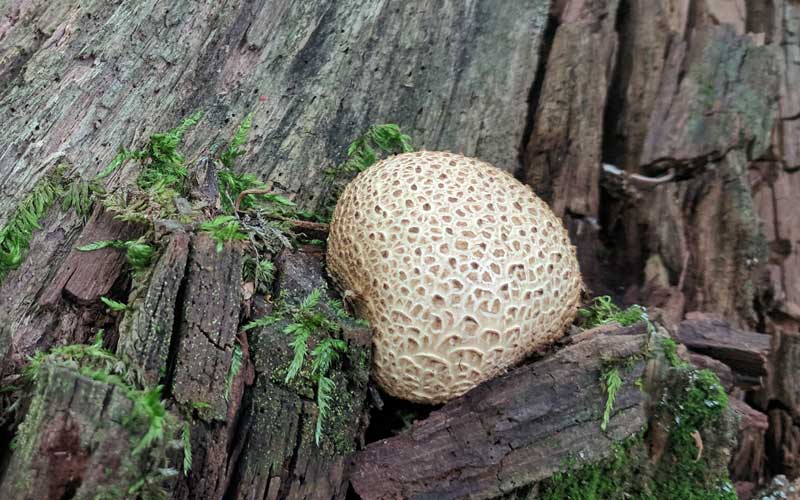- Home
- Mushrooms Q&A
Your mushroom questions answered.
People have a lot of questions about mushrooms!
And that’s no surprise, because compared to vegetables, grains and beans… there is a lot of mystery and uncertainty surrounding mushrooms as a food.
As new questions come in, we’ll keep adding to the list.
Enjoy!
Which mushrooms are best for your health?
That depends on the kind of health benefit you’re looking for.
For example, while Chaga is known for strengthening the immune system, Lion’s Mane mushrooms are famous for supporting brain health.
Cordyceps are best known for boosting energy levels and reducing fatigue.
And in Japan Shiitakes mushrooms are often used to treat arthritis, diabetes and high blood cholesterol.
In other words, mushrooms have amazing health-supporting properties. But when it comes to specific benefits, there’s likely one or two mushrooms that will be best suited for the task.
For more on this, check out our page on medicinal mushrooms.
Which medicinal mushrooms lower cholesterol levels?
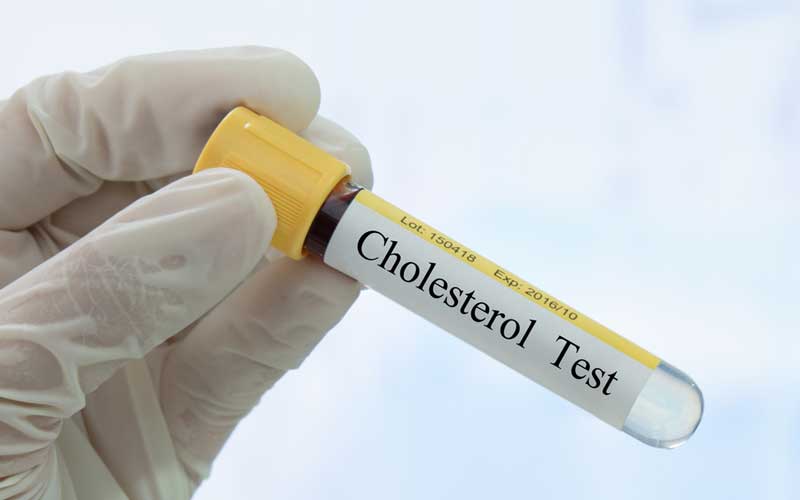
Good question. And keep in mind that scientific studies are still in their early stages when it comes to the specific actions of mushrooms, like their ability to reduce levels of bad cholesterol.
The key appears to lie in the beta-glucan polysaccharides found in several medicinal mushrooms.
Beta-glucans have anti-cancer properties. They also help to regulate your immune system and reduce cholesterol levels.
The medicinal mushrooms most commonly cited as being good for cholesterol levels – and they all contain beta-glucan polysaccharides – are Lion’s Mane, Cordyceps and Shiitake mushrooms.
In Chinese and Japanese medicine, Shiitake mushrooms have been used to alleviate arthritis and treat diabetes, as well as high blood cholesterol levels.
Lion’s Mane and Shiitake mushrooms are both delicious and readily available in specialty food stores and at markets. And you can find Lion’s Mane, Shiitake and Cordyceps mushroom extracts separately or combined in the form of supplements, in capsules or tinctures.
Are mushrooms vegetables?
No, they aren’t! You’d be forgiven for thinking they are, because they’re always found in the fruit and vegetable section in supermarkets.
And mushrooms certainly aren’t meat.
So… if they’re not vegetables or meat, what are they?
Fungi are a kingdom all of their own.
Funnily enough, fungi and mushrooms have more in common with animals than vegetables.
Like humans and all other animals, fungi take in oxygen and “exhale” carbon dioxide. The opposite of plants.
And while plants and trees use cellulose and lignin for their structural strength, mushrooms use chitin. Where else can you find chitin? In the bodies of crustaceans and molluscs.
Interesting and confusing, both at the same time!
Which are the best mushrooms for a simple breakfast omelet?
This is a strangely specific question, but something people ask me quite often.
It turns out I can answer this with some authority, as I have a mushroom omelet for breakfast about 5 times a week. All part of my mushroom obsession!
For a long time I would almost always go with Shiitake mushrooms. Why? Because they keep well if you store them in a paper bag in the fridge. They’ll last a good few days before showing signs of drying out a little.
Shiitake mushrooms are also very good for your health, and taste great too.
I really like a regular Oyster mushroom in an omelet, but they don’t last long at all. In fact, unless I grow them myself, I haven’t found a local source of Oyster mushrooms that look even close to fresh.
Which brings me to my current favorite… the King Oyster. These look nothing like a regular Oyster mushroom.
What I love about them is their taste, which is fantastic… and the fact that they’ll store for even longer than Shiitake mushrooms when you keep them in the fridge.
I’m sure I’ll go back to Shiitake mushrooms some time soon, but my current love affair is with the King Oysters.
And by the way… no, I never use regular button mushrooms in my cooking.
How many carbs are there in mushrooms?
Raw mushrooms are very low in carbs. One cup of mushrooms – about 70 grams – contains only 2 grams of carbs.
If you’re on a low-carb diet, you can put mushrooms high on your grocery list.
They’re low in calories and fat too.
And packed full of nutritional goodness.
Of course, it’s just the mushrooms that are low in carbs. If you add mushrooms to a soup, sauce, casserole or risotto, you’ll have a lot of other ingredients to worry about when it comes to carbs, calories and fats.
How can I tell if a mushroom is poisonous?
You can’t tell if a mushroom is poisonous, unless you’re an expert, training in identifying mushrooms in the wild. Expert foragers know what they’re doing. They know which mushrooms are safe to eat, and which are not.
For the rest of us, just don’t do it. Ever. Don’t pick even a mushroom from your own lawn or beside a local footpath, and then take it home and eat it, raw or cooked. It could kill you.
And there’s no way to “recognize” a poisonous mushroom. They’re not all red, or all blue, or all small, or all large. They have no common, distinguishing features.
The Destroying Angel mushroom is a innocent-looking, white mushroom. As is the Death Cap mushroom. They’ll both kill you if you eat them.
Eat only those mushrooms that have been grown or picked by professionals.
Buy them at your local supermarket, specialty mushroom store or farmer’s market. There are plenty of wonderful edible mushrooms you can find in these places.
Or grow your own mushrooms at home, with grow kits from reliable suppliers.
But never take risks with mushrooms. It’s just not worth it.
How long do mushrooms last?
One of the defining characteristics of mushrooms is that they are ephemeral. Whether they are on your lawn, deep in the woods or on the counter in your kitchen… they don’t last long.
Remember, mushrooms are simply the fruiting bodies of a much larger organism under the surface of the ground. Their role is to rise up and disburse their spores into the wind. Once that is done, their work is complete and they begin to decompose.
If you buy your mushrooms fresh, or forage for them yourself, you can expect them to last for about a week in your fridge. In a paper bag, not in plastic.
If you have more than you can eat in a week, you may want to freeze or dry some of them.
Can you eat raw mushrooms?
You can eat edible mushrooms raw, but there are some good reasons not to.
First, many mushrooms… including the common button mushroom… contain agaritine. Agaratine is a carcinogenic compound that is destroyed by cooking, but present is those raw, sliced mushrooms you see at salad bars.
Granted, it is present in very small quantities. But why increase the toxic load on your body?
Next, mushrooms are more or less indigestible in their raw form. They have tough cell walls made from chitin, which is a super-hard substance also found in the shells of lobsters.
Chitin creates the structural strength in mushrooms in much the same way as cellulose does for plants. And, as with cellulose, humans can’t digest chitin.
But when you cook mushrooms, those bonds are broken, the mushroom becomes digestible, and all the health-supporting compounds mushrooms contain become available to us.
Finally, mushrooms generally taste a lot better once they have been cooked.
All this to say, you can eat mushrooms raw if you really want to, but you’re better off cooking them first.
Can dogs eat mushrooms?
It’s OK if your dog eats some of the mushrooms you would typically be cooking at home. Most edible mushrooms are not toxic to dogs.
So you don’t need to worry about your dog grabbing a fallen slice of mushroom, in the way you might with a slice of onion or square of chocolate.
It’s outside of the kitchen that you need to be careful. Whether you’re in your own garden or out in the woods, there are plenty of toxic mushrooms that could make your dog sick, or worse.
If a mushroom is toxic to humans, you can assume it will be toxic to a dog too. This means paying close attention, particularly if your dog is off-leash in an area where mushrooms are found.
As a side note, one hears stories of dogs deliberately seeking out and eating magic mushrooms. It seems they enjoy the high!
If you do discover your dog has eaten some mushrooms outside, you should go to your vet as quickly as possible, preferably with a sample of the mushroom your dog has eaten. And don’t worry, touching and handling toxic mushrooms isn’t dangerous. They’re dangerous only if you ingest them.
On the plus side, several mushrooms and mushroom supplements can be added to your dog's diet and improve its health.
Can you freeze mushrooms?
Yes, you can freeze mushrooms. But you don’t want to freeze them raw. As with vegetables like corn and beans, it’s best to partially cook them first. You can either blanch or sauté them first. If you ask me which was best, I’d recommend you sauté them. This seems to retain more of the original flavor and texture.
First, clean your mushrooms with a brush or damp cloth. And cut off the woody ends of the stems. You’ll want to slice your mushrooms too, before putting them in the pan. You don’t need to cook them completely, but enough to seal them.
Then lay them out on a baking sheet with parchment paper, so none of them touch each other while they are freezing. Once frozen, you can then transfer them to airtight freezer bags.
Freezing isn’t the only way to preserve those extra mushrooms. Some mushrooms, like Shiitake and Morels store well after being dehydrated. And if you’re into pickling, you can pickle mushrooms too.
Page 2 of mushrooms and fungi Q&A...
Got questions about mushrooms and fungi?
If you have a question about mushrooms or fungi you'd like us to answer for you, you can submit your question here...
Related Topics:
4 Ways mushroom mycelium challenges our definitions of intelligence.
As humans we like to believe only our species is intelligent. Research into fungal mycelium is now challenging that assumption. Read the full article...
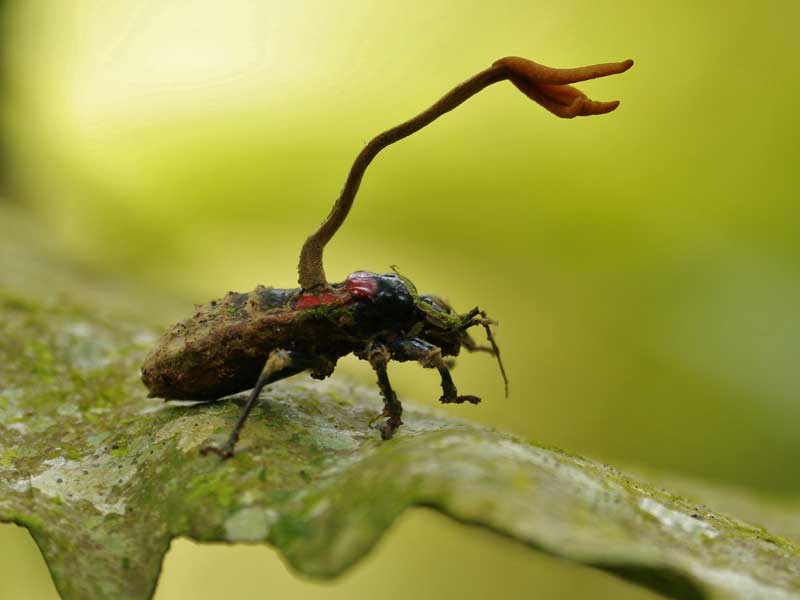
6 Incredible things about fungi and mushrooms you probably don’t know.
From zombie fungi to mycelium coffins and more, mushrooms and fungi never fail to stretch and test our imaginations. Read the full article...
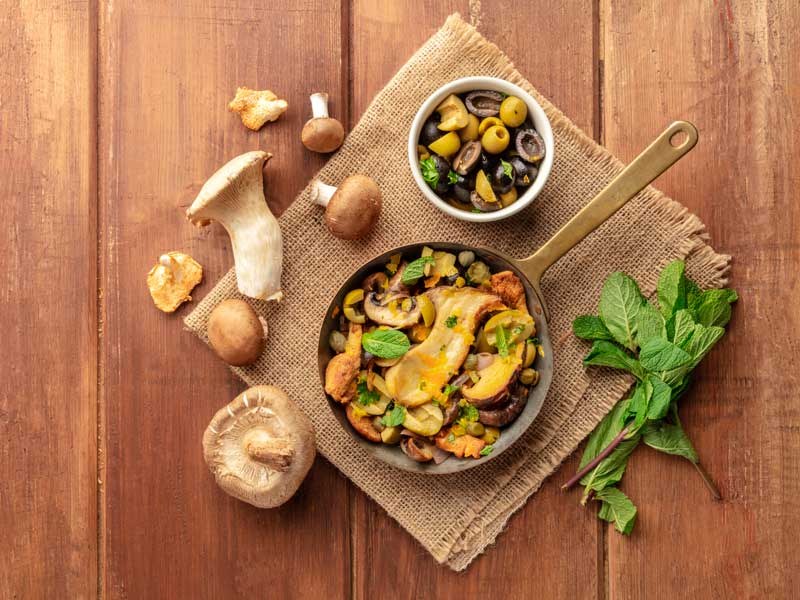
The nutritional value of mushrooms in your diet is greater than you think.
Mushrooms are dense with nutritional value and a variety of textures and flavors… including chicken, lobster and shrimp! Read the full article...
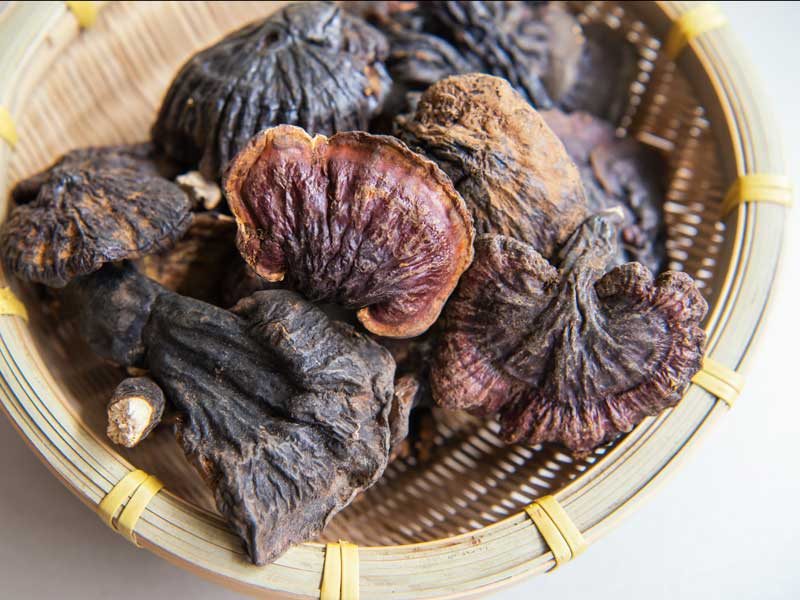
Medicinal mushrooms have been used by healers for thousands of years.
Medicinal mushrooms and fungi offer a variety of health benefits, many of them tied to supporting your natural immune system. Read the full article...
